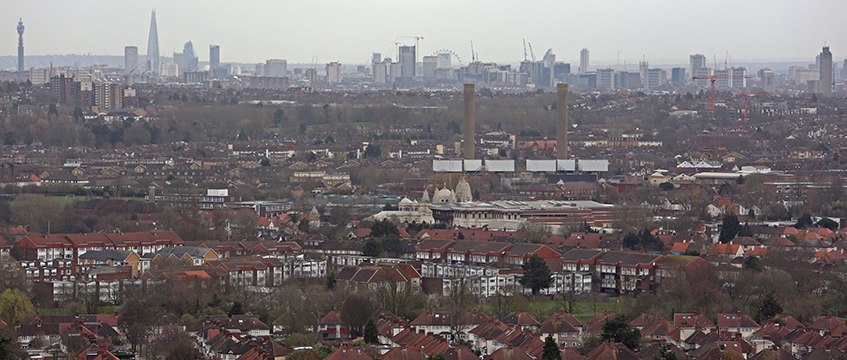London’s real estate the worst for city carbon emissions
London has recorded the highest proportion of carbon emissions from real estate compared with any other major city in the world, according to research from JLL.
The Decarbonising Cities and Real Estate report showed buildings in London accounted for 78% of emissions in the capital, compared with an overall median average of 60% across 32 global business centres.
Despite the findings, JLL praised London as “climate progressive” owing to its 2030 net zero target, as well as its focus on biodiversity and retrofitting. Manchester was also dubbed as a “climate progressive” alongside Paris, Munich, Berlin, Frankfurt and Hamburg.
London has recorded the highest proportion of carbon emissions from real estate compared with any other major city in the world, according to research from JLL.
The Decarbonising Cities and Real Estate report showed buildings in London accounted for 78% of emissions in the capital, compared with an overall median average of 60% across 32 global business centres.
Despite the findings, JLL praised London as “climate progressive” owing to its 2030 net zero target, as well as its focus on biodiversity and retrofitting. Manchester was also dubbed as a “climate progressive” alongside Paris, Munich, Berlin, Frankfurt and Hamburg.
Those cities were behind a cohort identified as “trailblazers”, with Copenhagen highlighted for its aim to be the world’s first carbon-neutral capital city by 2025. Others in that group included Amsterdam, Helsinki and Stockholm.
Cities that had “aspirational” climate action plans that “lacked joined-up specifics” included Chicago, Düsseldorf and Hong Kong.
Dubai, Mumbai and Shanghai were the cities that have made the least progress, having released their first action plans more recently.
How to meet 2050 targets
Researchers said while most of the world’s major cities were setting ambitious sustainability targets, plans to tackle embodied and operational carbon emissions were often omitted. Buildings are estimated to account for 40% of global carbon emissions, but JLL said the proportion was “considerably higher” in cities.
The research also showed that in developed cities, 80% of the building stock that will be standing in 2050 has already been built. Therefore, retrofitting rates will need to exceed 3% per year to meet 2050 targets, up from current levels of 1-2%.
JLL said knowledge sharing between governments and large and small entities would help bridge the financial burden of retrofitting, as well as accelerator programmes.
The report also called for city governments to prioritise greening energy grids, highlighting that there are limits to what building owners can achieve without decarbonising these.
In the meantime, owners, investors and occupiers have been encouraged not to wait for regulations to kick in before taking action.
Beyond decarbonising the built environment, JLL said investors and occupiers must also consider regeneration, circularity and resilience.
Partnerships are “crucial”
Guy Grainger, global head of sustainability services and ESG at JLL, said cities with strong leadership that make “tough early decisions” will “win in the medium term”, while “those without the courage will fall behind in the race to a net zero economy”.
Grainger added that partnerships will be essential to achieving decarbonisation. He said: “The science tells us that we are at a tipping point and, to deliver a net zero economy, city governments need to take real estate decarbonisation as seriously as other sustainability initiatives.
“Partnerships will be crucial in driving progress; to pool resources and knowledge, to share or copy best practice, to educate, to help scale technology and to create the right balance between regulation, incentivisation and advocacy.
“By working together, all parties will be better able to bridge the gap between ‘intent’ and ‘action’ and make the best of this vital decade.”
To send feedback, e-mail pui-guan.man@eg.co.uk or tweet @PuiGuanM or @EGPropertyNews
Image © Susannah Ireland Photography Ltd/Shutterstock











